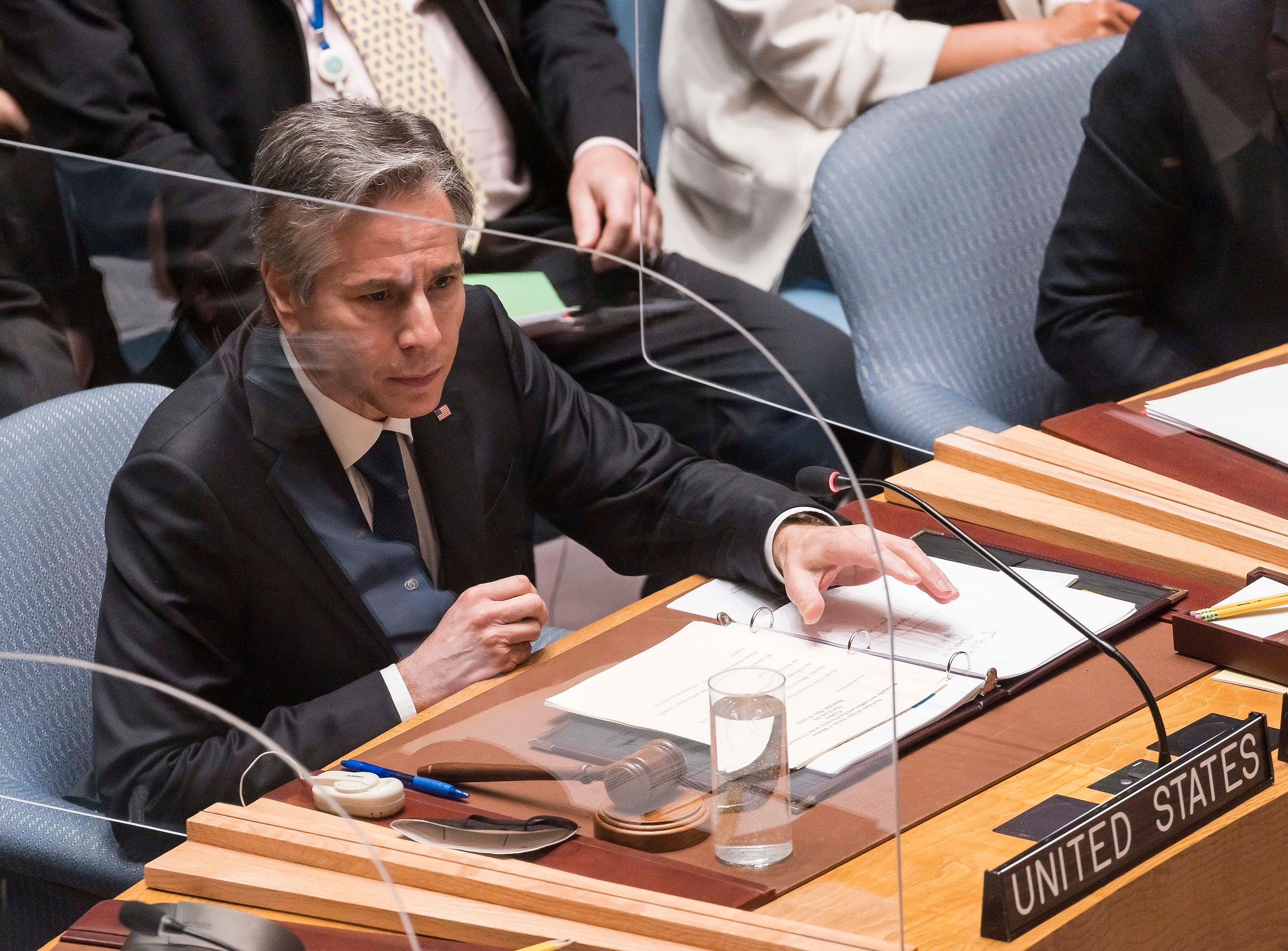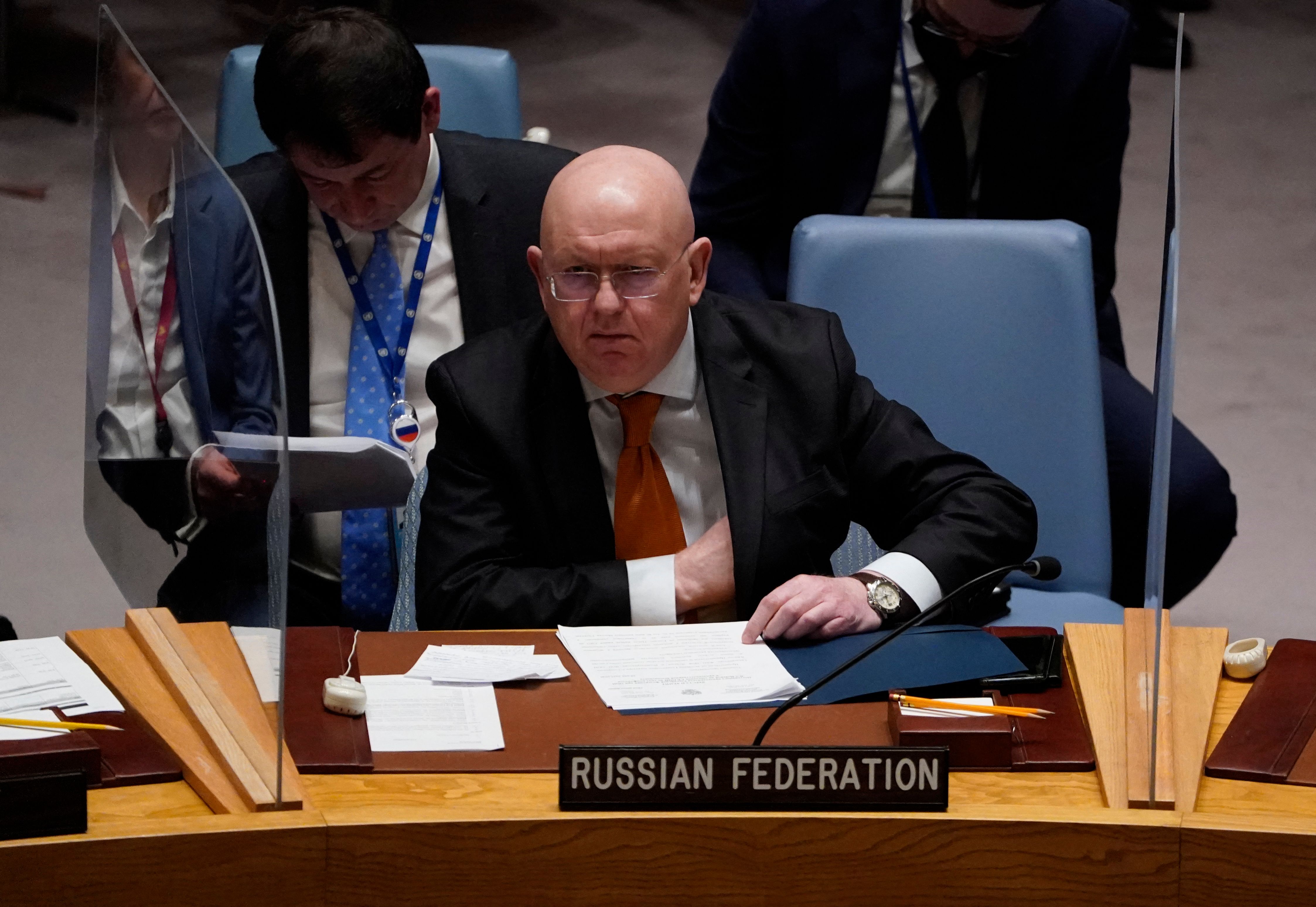US, Russia trade blame on global food insecurity
Sign up now: Get ST's newsletters delivered to your inbox

US Secretary of State Anthony Blinken speaks during a UN Security Council meeting about global food security.
PHOTO: EPA-EFE
UNITED NATIONS, UNITED STATES (AFP) - The United States and Russia blamed each other on Thursday (May 19) for the worsening food situation around the world as the war in Ukraine unfolds.
Washington called on Russia to allow exports of Ukrainian grain that is held up in Black Sea ports. Ukraine is one of the world's top producers of wheat.
"Stop blocking the ports in the Black Sea. Allow for the free flow of ships and trains and trucks carrying food out of Ukraine," Secretary of State Antony Blinken said during a UN Security Council meeting organised by the US.
"Stop threatening to withhold food and fertiliser exports from countries that criticise your war of aggression," he said.
"The food supply for millions of Ukrainians and millions more around the world has quite literally been held hostage by the Russian military," Blinken added.
Russia's ambassador to the UN, Vassily Nebenzia, countered by saying his country is being blamed for all of the world's woes.
He said the world has long suffered from a food crisis caused by an inflationary spiral stemming from rising costs of insurance, logistical snarls, and speculation on Western markets.
He argued that Ukraine's ports are blocked by Ukraine itself, which he said has placed mines along the Black Sea coast.
And Ukraine does not want to cooperate with shipping companies to free up dozens of foreign freighters that are blocked in port, Nebenzia said.
He also denounced Western sanctions against Russia, saying their consequences are worsening food insecurity around the world.

Russia's UN representative, Ambassador Vassily Nebenzia, attends a UN Security Council debate on food security at UN headquarters.
PHOTO: AFP
Blinken countered that "sanctions aren't preventing Russia from exporting food and fertiliser."
"Sanctions imposed by the United States and many other countries deliberately include carve outs for food, for fertiliser and seeds from Russia," he said.
"The decision to weaponise food is Moscow's and Moscow's alone," said Blinken.
A day after the UN Secretary-General Antonio Guterres called on Russia to allow exports of Ukrainian grain, some 80 countries planned to address the council meeting.


